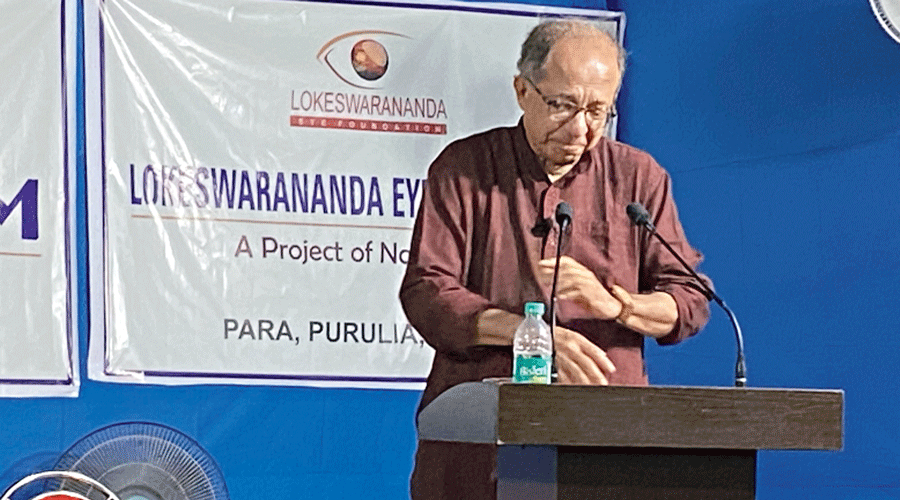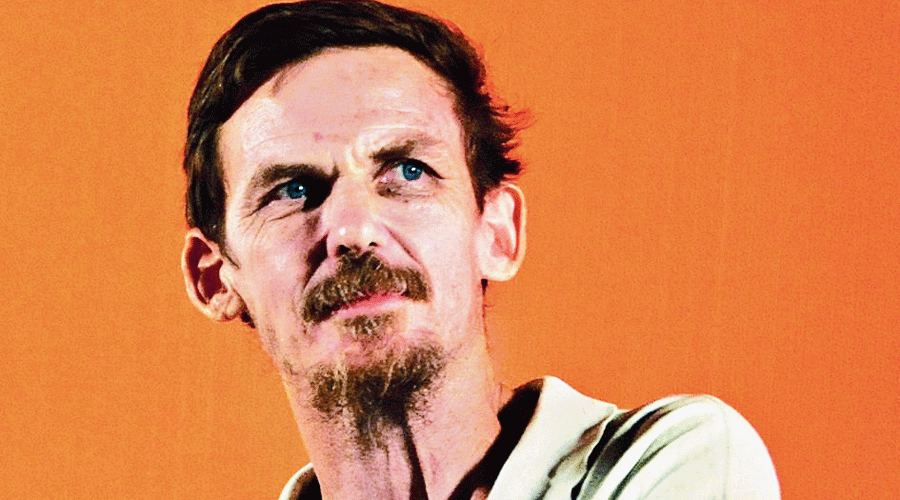The pursuit of hawkish nationalism is detrimental to the growth of a country’s economy, Kaushik Basu, C. Marks Professor of international studies and professor of economics at Cornell University, said at Para in Purulia on Thursday.
“We cannot be hyper-nationalistic…,” Basu said while delivering a lecture on “India’s economy and the role of education: Past, present and what lies ahead”.
The economist made the comment while referring to Argentina, which had a booming economy and was one of the wealthiest countries in the 1920s. He credited Argentina’s intellectual influx for its economic boom and linked its downfall to the practice of hyper-nationalism by the junta in the 1930s.
Post-1862, Argentina experienced robust economic growth that was mostly aided by large capital inflows and massive immigration, mostly from Italy, Spain and a few central European countries. With the infusion of capital and human capital, Argentina emerged as the region’s powerhouse and, by 1896, its per capita income was on a par with that of the United States.
However, during Argentina’s “Infamous Decade” of the 1930s, when authoritarian and conservative regimes occupied the Latin American nation and advocated hyper-nationalism, the country slid on the economic path. Some studies have shown that at its present rate of growth, Argentina would need at least 90 years to catch up with the economies of European nations.
In what sounded like a warning in the Indian context, the former chief economist of the World Bank referred to Argentina’s engagement with hyper-nationalism, when it shut its door on educated people who used to pour into the Latin American country, which he said triggered the economic downfall.
“Argentina saw a period of hyper-nationalism…. We cannot be hyper-nationalistic…. Argentina developed that and under a military rule,” Basu said, and referred to India’s past tradition of high standards of higher education.
The economist said that in absolute contrast to Argentina’s experience, America strode the path of economic development with the “surging of universities”.
Basu underscored the need for India to spend on education and brought up the dramatic economic rise of South Korea as an example. He said South Korea invested in higher education and that helped the country’s economy surge ahead. He said that by 1990, South Korea was 15 times richer than India with a higher per capita income and much of it happened because the Asian nation was generating the highest number of intellectual property per capita.
Basu’s lecture was organised by the Filix School of Education in Barandanga, Purulia, which is run by Nanritam, a social welfare organisation.
In a lecture that spanned around 50 minutes and was followed by a Q&A session, Basu covered a wide range of issues, including economics, morality and polarised politics. The importance of creative education formed the core of his speech.
Talking about the state of the Indian economy, he said other than the global financial crisis-induced slide in 2008, Indias growth trajectory had hovered around 8 per cent between 2003 and 2011 but it began to dip in 2016.
“The deterioration (of growth)… started in 2016. (From) 2016 onwards, till 2020, each year’s growth was less than the previous year’s…. Since last year, the growth has picked up, it has been 8.7 per cent. Hopefully, the worst is behind us,” Basu said.
In the same breath, the professor articulated his worry and hinted at investors’ “lack of trust” in the Indian economy and linked it to the polarisation unfolding in Indian society.
“Economists don’t recognise the importance of politics and sociology and trust among human beings. But there are studies by historians and there are studies in laboratories…. So, trust in society is very difficult to define but Francis Fukuyama (political scientist and economist) has described with cross-country data that once trust gets eroded, investment rates go down, and India’s investment rate is going down.”











